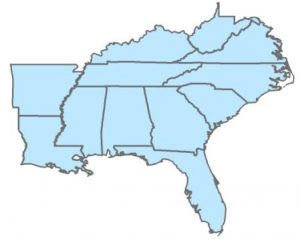[ad_1]
 “The past is never dead,” wrote famed Southern author William Faulkner. “It’s not even past.”
“The past is never dead,” wrote famed Southern author William Faulkner. “It’s not even past.”
I’ve always been more of a Hemingway man myself. Preferred literary idols aside, it’s a great line.
I was in Virginia this year over the Fourth of July to visit a good friend and his family. There are few places in America where Faulkner’s iconic words ring truer than the Old Dominion.
At Yorktown Battlefield, earthworks from a siege 250 years ago bulge across the landscape. Visit the mountaintop plantation Monticello, and you can still see the depression in the floorboards where Thomas Jefferson’s servant placed a basin of cool water each morning into which our third president liked to plunge his feet upon waking.
Thomas Jefferson’s enslaved servant, that is. As a historical site, Monticello does a decent job of explaining the harsh realities of slavery, along with the contradictions of a man who tolerated the horrific economic conventions of his time and place while still being able to write in this country’s founding document “that all men are created equal.”
The United States carried its original stain forward as the decades unspooled. Behind the daunting moat at Fort Monroe lies evidence of the Civil War, and, in a few places, tributes to the defeated Southern cause that are now being quietly disassembled.
Confederate monuments generally were not erected directly following the Civil War to honor the dead by contemporaries who actually knew them. The vast majority of Confederate monuments went up in the early 1900s as part of an organized campaign by racists to redefine Civil War history in order to bolster support for efforts to disenfranchise Black Americans.
This worked for a long time. Slowly, though, agonizingly, after the nationwide civil rights movement and half a century of follow through, Black citizens made meaningful gains.
The South has a ton to be proud of. Many of the most prominent Founding Fathers were Southerners. Thousands of Southerners fought bravely in righteous conflicts, like World War II. Hell, the food alone is worth a national holiday in my book — there’s cause for all of us north, south, east, and west to celebrate the traditions of Southern hospitality.
Yet, the Lost Cause narrative of the Civil War is not among the many valid reasons for Southern pride. The Confederates were traitors who turned on their own country the moment Abraham Lincoln was democratically elected president because they thought he posed a threat to slavery.
The Civil War was only about states’ rights in that it was about southern states wanting the right to allow their citizens to hold other people in bondage. Rather than accepting that the world was changing and that it would be better to change along with it, Confederates threw a tantrum, turned their backs on their own country, and then got their asses whooped in the bloodiest war in U.S. history. Even after all that, some of their descendants dragged their heels for another hundred years trying to preserve some semblance of the antebellum racial hierarchy. Not the South’s finest moments.
Of course, none of this means that Southerners should go around holding their heads in shame. On the contrary: although we do not bear responsibility for the sins of those who came before us, learning from their history is certainly something to be proud of.
Let’s not repeat mistakes of the past. While the January 6 insurrection is not comparable to the nationwide destruction wrought by the Civil War, it was a violent rebellion against a constitutional expression of the democratic process (it also resulted in something the Civil War did not: the first breach of the U.S. Capitol by a hostile force since the War of 1812).
Donald Trump is already laying the groundwork for a new Lost Cause mythology surrounding January 6. He has repeatedly promised to pardon January 6 rioters if he regains the White House. He has doubled down again and again on the lie that the 2020 election was stolen from him, a claim rejected by more than 60 judges, including Trump appointees. Despite over a thousand January 6 rioters being charged with crimes, and despite hundreds of them already having been convicted, Trump’s far right allies like Marjorie Taylor Greene have been working hard to rebrand the insurrectionists as “political prisoners.”
People who once peacefully supported Donald Trump do not have to wear a hair shirt over January 6. What they should do is understand that even post-bellum Southerners would have ultimately been better off by eschewing the Lost Cause myth and moving forward more quickly.
History does not have to repeat itself. But, in the event we see a Rudy Giuliani statue going up somewhere, we’ll know that we’re in trouble once again.
Jonathan Wolf is a civil litigator and author of Your Debt-Free JD (affiliate link). He has taught legal writing, written for a wide variety of publications, and made it both his business and his pleasure to be financially and scientifically literate. Any views he expresses are probably pure gold, but are nonetheless solely his own and should not be attributed to any organization with which he is affiliated. He wouldn’t want to share the credit anyway. He can be reached at jon_wolf@hotmail.com.
[ad_2]




